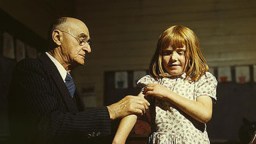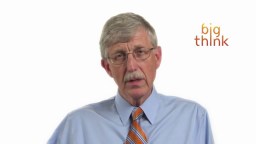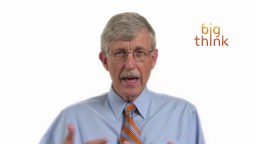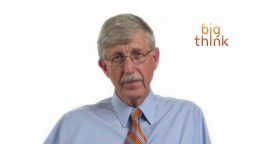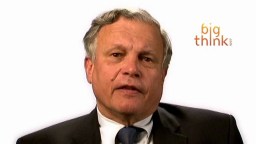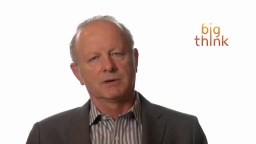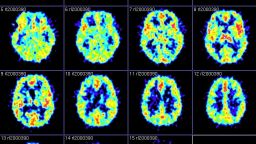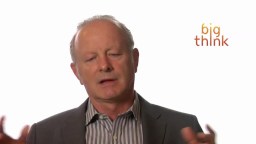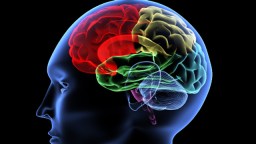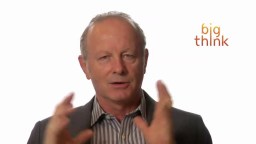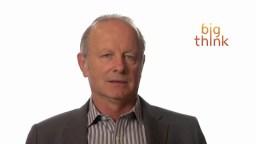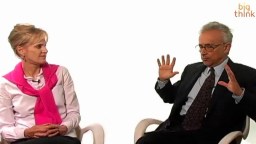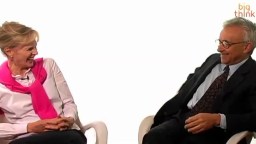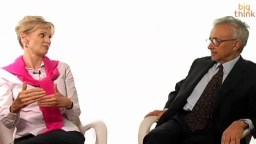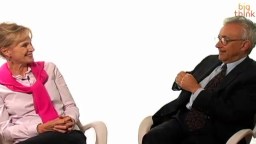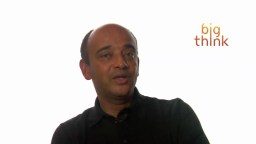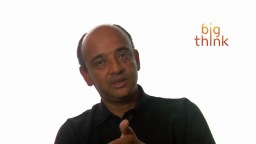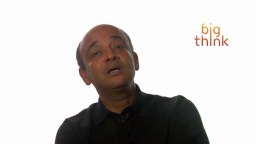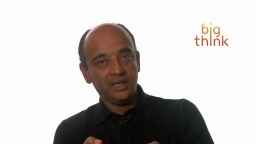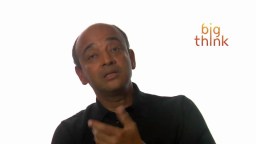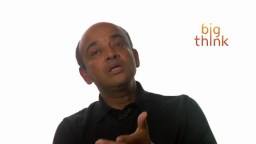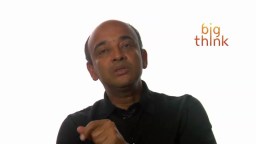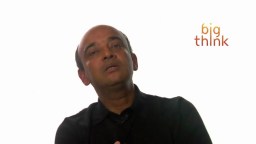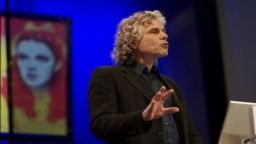All Videos
All Stories
The NIH chief talks about attempts to factor an individual’s genetic profile into the way the person is diagnosed and treated.
▸
4 min
—
with
The former director of the National Human Genome Research Institute describes how researchers compare DNA sequences to pinpoint which genes cause which diseases.
▸
4 min
—
with
Recent uncertainty about whether federal funds can be used for for human embryonic stem cell research has “cast a cold chill” through the field, says Collins.
▸
5 min
—
with
We must confront our national obesity crisis, warns NIH director Francis Collins, or face a decrease in life expectancy.
▸
4 min
—
with
Having a smaller budget is forcing the NIH to be even more specific about how it sets priorities, and, in some instances, to close down productive programs.
▸
4 min
—
with
The real “return” on research investments is in clinical benefits, diagnostics, therapeutics, and preventive measures. The lead time on those is often measured in years, so they can be hard […]
▸
4 min
—
with
“Scientific opportunity has to be a big part of it,” says Francis Collins. Sometimes when a rare disease hits that moment of scientific opportunity it can reveal things about common […]
▸
3 min
—
with
A conversation with the director of the National Institutes of Health.
▸
40 min
—
with
Investments in areas like alternative energy sources have a negative cost differential in the short run, even though they may pay off in 20 or 30 years. And what about […]
▸
2 min
—
with
The neuroscientist recounts some of the breakthroughs that have come out of his world-renowned lab.
▸
5 min
—
with
Some rats are naturally more fearful than others. The neuroscientist’s current research focuses on what these outliers can tell us about the psychopathology of fear in humans.
▸
3 min
—
with
Animal studies allow neuroscientists to study the brain at the level of individual neurons, unlike human brain-imaging studies.
▸
1 min
—
with
The amygdala is responsible for implicit memories, but these are different from what Freud called the unconscious.
▸
3 min
—
with
The neuroscientist gives a short primer on the brain’s emotional processor.
▸
6 min
—
with
A conversation with the neuroscientist.
▸
20 min
—
with
“The process of consciousness is the process that allows us to run our lives personally and in society the way we do,” says Damasio. “It’s the thing that gives us […]
▸
5 min
—
with
Neurologists learned about how emotion originates in the brain from people like Phineas Gage, who had a spike driven into his head. By learning about the specific impairment of a […]
▸
12 min
—
with
From a neural standpoint, memory structures “are in of themselves rather dumb,” says Damasio. “It’s not that they know anything consciously. What they know is they have a sort of […]
▸
9 min
—
with
“We do have a measure of control,” says Damasio, “but it is not true that we have full control and it is not true that when we are executing an […]
▸
13 min
—
with
The USC neurobiologist and novelist speak about various topics on neurology and memory.
▸
40 min
—
with
Philosopher Kwame Athony Appiah talks about the difficulty of growing up gay in Ghana and why he is optimistic about the future.
▸
8 min
—
with
In 100 years Americans will look back with horror at our current penal system. The U.S. incarcerates one-quarter of world’s prisoners despite having only 4% of its population.
▸
6 min
—
with
Philosopher Kwame Anthony Appiah weighs in on the “Jersey Shore” star.
▸
3 min
—
with
Individuals like William Wilberforce of the abolitionism movement or Kang Youwei of the anti-foot-binding movement helped sway public opinion to a tipping point at which society’s perception reversed.
▸
4 min
—
with
Honor killings will end only once a majority of people identifies them with dishonor rather than honor. The proper response to an honor killing should therefore be not “Who cares […]
▸
4 min
—
with
Codes of honor are often localized, with differing notions about what entitles a man and a woman to respect. Convincing cultures with immoral practices to change should be done by […]
▸
5 min
—
with
History has proven that the best way to end immoral practices like slavery, dueling, and foot-binding has been to appeal to one’s sense of honor.
▸
3 min
—
with
A conversation with the philosopher.
▸
33 min
—
with
Psychologist Steven Pinker studies the interface between language and human computation, which he argues is the key to understanding human nature.
▸
7 min
—
with
“Happiness is not something that happens to you; happiness is a work ethic,” says Achor. “It’s something that requires our brains to train just like an athlete has to train.”
▸
2 min
—
with
